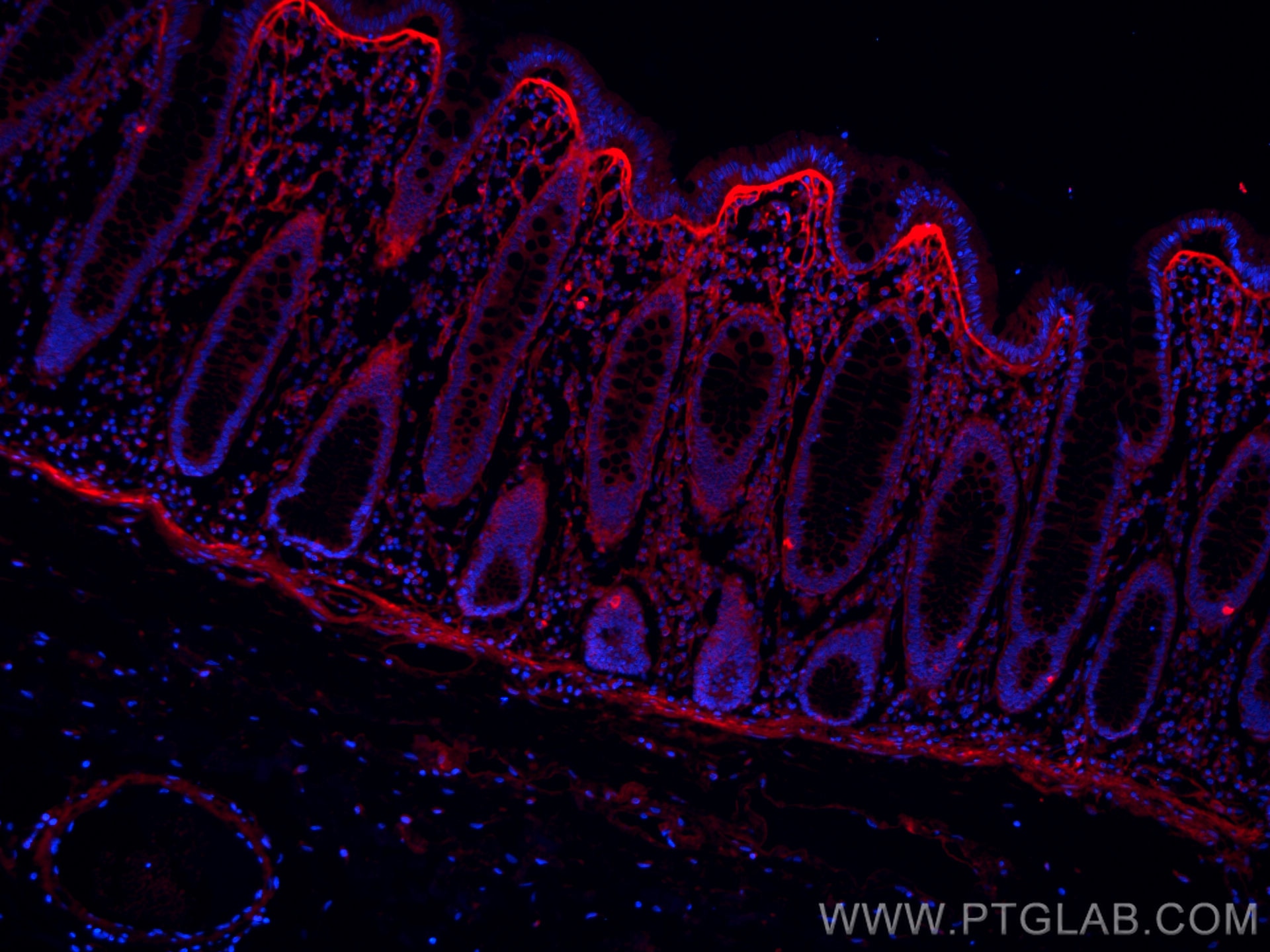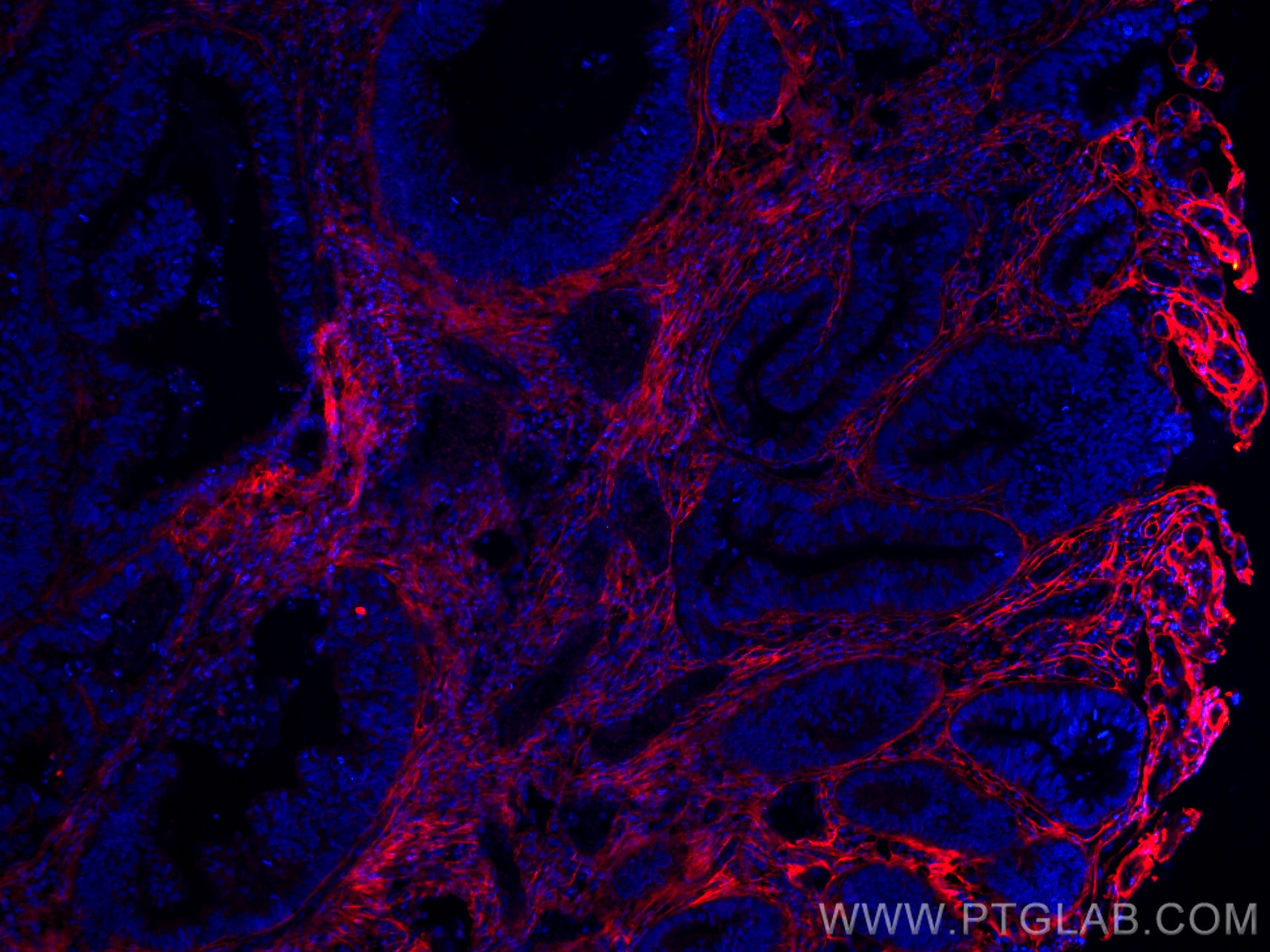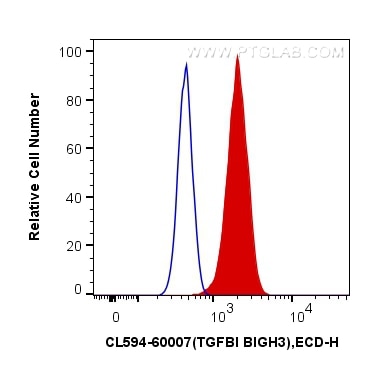Validation Data Gallery
Tested Applications
| Positive IF-P detected in | human colon cancer tissue |
| Positive FC (Intra) detected in | Y79 cells |
| Positive FC detected in | Y79 cells |
Recommended dilution
| Application | Dilution |
|---|---|
| Immunofluorescence (IF)-P | IF-P : 1:50-1:500 |
| Flow Cytometry (FC) (INTRA) | FC (INTRA) : 0.40 ug per 10^6 cells in a 100 µl suspension |
| Flow Cytometry (FC) | FC : 0.40 ug per 10^6 cells in a 100 µl suspension |
| It is recommended that this reagent should be titrated in each testing system to obtain optimal results. | |
| Sample-dependent, Check data in validation data gallery. | |
Product Information
CL594-60007 targets TGFBI / BIGH3 in IF-P, FC (Intra) applications and shows reactivity with human samples.
| Tested Reactivity | human |
| Host / Isotype | Mouse / IgG2a |
| Class | Monoclonal |
| Type | Antibody |
| Immunogen | TGFBI / BIGH3 fusion protein Ag0241 相同性解析による交差性が予測される生物種 |
| Full Name | transforming growth factor, beta-induced, 68kDa |
| Calculated molecular weight | 683 aa, 75 kDa |
| GenBank accession number | BC000097 |
| Gene Symbol | TGFBI |
| Gene ID (NCBI) | 7045 |
| ENSEMBL Gene ID | ENSG00000120708 |
| RRID | AB_2919887 |
| Conjugate | CoraLite®594 Fluorescent Dye |
| Excitation/Emission maxima wavelengths | 588 nm / 604 nm |
| Form | Liquid |
| Purification Method | Protein A purification |
| UNIPROT ID | Q15582 |
| Storage Buffer | PBS with 50% glycerol, 0.05% Proclin300, 0.5% BSA , pH 7.3 |
| Storage Conditions | Store at -20°C. Avoid exposure to light. Stable for one year after shipment. Aliquoting is unnecessary for -20oC storage. |
Background Information
TGFBI, also named as BIGH3, Kerato-epithelin and RGD-CAP, binds to type I, II, and IV collagens. TGFBI is an adhesion protein which may play an important role in cell-collagen interactions. In cartilage, it may be involved in endochondral bone formation. TGFBI is an extracellular matrix adaptor protein, it has been reported to be differentially expressed in transformed tissues. TGFBI is a predictive factor of the response to chemotherapy, and suggest the use of TGFBI-derived peptides as possible therapeutic adjuvants for the enhancement of responses to chemotherapy.(PMID:20509890) Defects in TGFBI are the cause of epithelial basement membrane corneal dystrophy (EBMD). Defects in TGFBI are the cause of corneal dystrophy Groenouw type 1 (CDGG1). Defects in TGFBI are the cause of corneal dystrophy lattice type 1 (CDL1). Defects in TGFBI are a cause of corneal dystrophy Thiel-Behnke type (CDTB). Defects in TGFBI are the cause of Reis-Buecklers corneal dystrophy (CDRB). Defects in TGFBI are the cause of lattice corneal dystrophy type 3A (CDL3A). Defects in TGFBI are the cause of Avellino corneal dystrophy (ACD).
Protocols
| Product Specific Protocols | |
|---|---|
| IF protocol for CL594 TGFBI / BIGH3 antibody CL594-60007 | Download protocol |
| Standard Protocols | |
|---|---|
| Click here to view our Standard Protocols |


